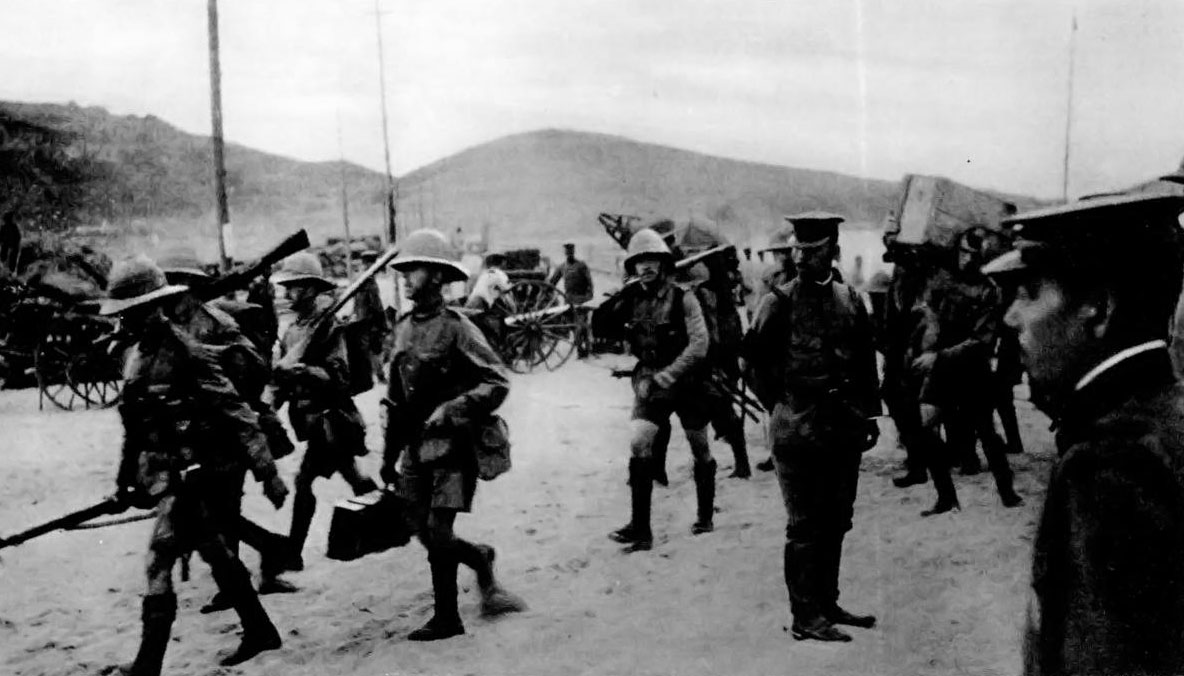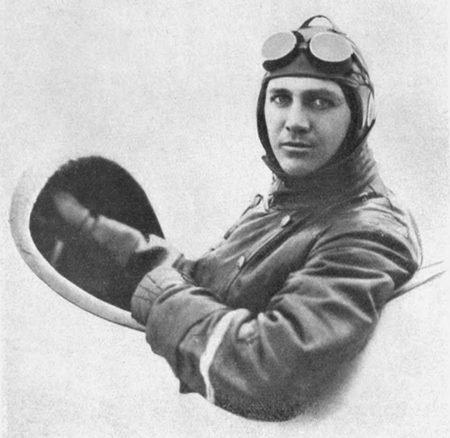For most expats in China, the name “Tsingtao†conjures up images of beer, but for fans of military history it’s a name associated with the most important episode of China’s First World War: the siege and battle for the German port settlement on the Shandong Peninsula’s southern coast. The Japanese attack, made with British assistance, lasted two months and ended with German surrender on November 7.

Tsingtao (now known as Qingdao) became a German possession in 1898; by 1913 the population had quickly grown to about 55,000 Chinese and 5,000 Europeans and Japanese. It was under the control of the Reichsmarineamt (German Imperial Navy), and was the home port for Germany’s Far East Squadron, though the fleet was not there at the time of the battle. (At the outbreak of the war, the squadron commander Admiral Graf von Spee took the fleet out of Tsingtao to avoid being trapped in the port.)
Japan’s entry into the First World War was a result of regional ambitions and its alliance with Britain, signed in 1902 with both parties motivated by a common interest in restricting Russian expansion. Japan declared war against Germany on August 23, 1914. Ten days later Japanese troops landed on the Shandong Peninsula; this was a violation of China’s neutrality, but Peking – struggling to hold the country together after the fall of the Qing dynasty in 1911 – was not in a position to defend its sovereignty.
Japanese troops numbered 23,000 and Britain contributed 1,500 (as well as a squadron of warships); the German garrison was about four-thousand strong. As well as being outnumbered 1 to 6, the Germans were isolated, outgunned at sea, on land, and in the air, yet they put up a determined resistance. Allied casualties numbered about 730 killed, while the Germans suffered 199 dead.
The Aviator of Tsingtao

The standout character from the battle of Tsingtao was German naval pilot Gunther Plüschow. He had made his first flight over Tsingtao on July 28, the same day Austria-Hungary declared war on Serbia (and thereby starting the First World War). A few days later, Plüschow’s sole flying colleague crashed the colony’s second Taube monoplane during its maiden flight, injuring himself and destroying the aircraft. Plüschow was left as a one-man air force. In his barely-airworthy monoplane, he flew missions alone, armed with only a pistol, all the while dodging ground fire and the enemy’s superior biplanes as he spied on Allied positions and movements.
Adding to the excitement was the makeshift nature of Plüschow’s “airfield.†He took off from and landed at the local racecourse, which was much too short for the purpose. Today the site of the racecourse is part of Huiquan Square.
The Japanese enjoyed almost complete air supremacy. Their Navy Flying Corps had four seaplanes – French Maurice Farman biplanes – which were larger, faster, and more heavily armed than the Taube. The Japanese Army had four Farmans of its own, which were operated from a purpose-built airfield at Tsimo (Jimo), about 40 kilometres to the north.
Against terrible odds, Plüschow took to the skies day after day, gaining valuable intelligence for his beleaguered comrades. He also made several daring bombing attacks against the Allies using improvised munitions.
On the eve of surrender, Plüschow was given important documents and ordered to fly to nominally neutral China. Here in his own words, he describes his dramatic last minutes in the German enclave:
There was no more time to lose. The aviation field had become extremely uncomfortable through the continuous shell and shrapnel fire.
Once more I examined my machine, shook hands with my men, stroked the head of my faithful dog, then I opened the throttle and my Taube shot like an arrow into the night.
Suddenly, as I was just about 30 metres above the centre of the aerodrome, my machine received a fearful jar, and I was able to prevent her crashing downwards only by putting forth all my strength. An enemy grenade had just burst, and the air-pressure caused by the detonation nearly sent me to the ground. But, thank goodness, a big hole in my left plane [wing] caused by a shell-splinter was the only damage.
The usual hail of shrapnel followed — my last farewells from the Japs and their English Allies.
Plüschow flew his monoplane southwest into China. As neutral territory, China meant safety – on paper at least. However, the country was economically and politically more closely tied to the Allies, so it favoured them over the Germans, and would formally end its neutrality in August 1917 (four months after the United States) to join the winning side.
His plane out of fuel, Plüschow crash-landed in a paddy field and a crowd of peasants soon gathered around, pressing forward in awed wonder.
…when I clambered out of my machine and tried to signal to them, there was no holding them. They all fled, howling and screaming, the men first, leaving the children who dropped behind as peace-offerings to the devil. I do not think my appearance could have caused greater consternation in darkest Africa.
With prompt decision I ran after them, hauling three or four of them by their pigtails to the machine, so as to convince them that the big bird was harmless.
This helped after a little, and when I presented them with some gold pieces they averred that by a lucky chance they were in the presence of a Good Spirit; therefore, they willingly helped to place the aeroplane in a horizontal position once more. When the others saw this, they gathered round in such crowds that I was surprised the machine was not crushed.
How the Chinese marvelled! How they touched and examined everything! How they laughed and chattered!
The German was taken by the authorities to the city of Nanking, where he found himself under de facto house arrest, but not for long. He escaped and made his way to Shanghai, where he went into hiding. Several months later, he set sail for San Francisco under the alias of McGarvin. Plüschow crossed the United States and then sailed from New York for Europe under a new identity. Captured when passing through the the British colony of Gibraltar, he was shipped to England, where he was interned in a series of POW camps, the last of which was at Donington Hall in the Midlands.
I’ll leave the details of the escape to Plüschow himself in his bestselling account of his exploits, Die Abenteuer des Fliegers von Tsingtau (The Adventures of the Airman of Tsingtao), but in short, he and a fellow officer broke out after midnight on July 6, 1915. His companion was soon apprehended but Plüschow managed to evade the police and the watchful eye of the public alerted by “wanted†posters and the newspapers. After a week on the run and several failed attempts, Plüschow finally managed to stow away on a Dutch ship to the neutral Netherlands. From there he travelled home to a hero’s welcome. He was, as far as is known, the only German in either world war to escape from Britain and get back to the Fatherland.
An English edition of Plüschow’s book came out in 1922. Despite the rather dull title, My Escape from Donington Hall, it’s beautifully written, fast-paced, and rousing. It was republished as an e-book in 2014 as The Aviator of Tsingtao by Camphor Press.
Plüschow died in an aircraft crash in 1931 while on an expedition to Patagonia.
To learn more about Plüschow’s action-packed life, I recommend Anton Rippon’s 2009 biography, Gunther Plüschow: Airman, Escaper, Explorer.








Relay this a great article. I learn lot from this post. Thank you so much.